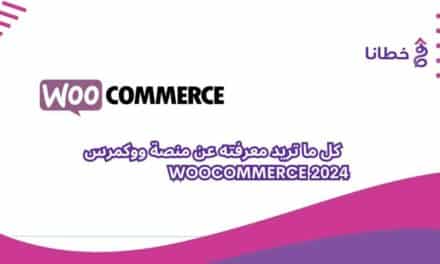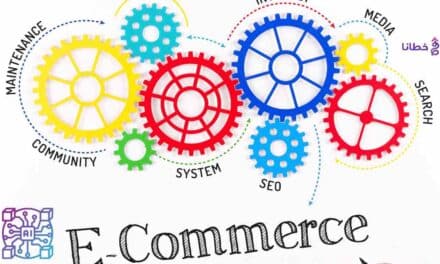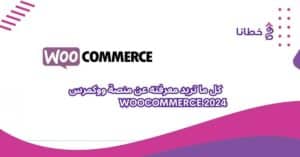table of contents
In our modern world, where technology and digitization are prevalent, digital selling has become essential to the success of any project or organization. Whether you own a small business or a large corporation, mastering the basics of digital selling will be key to your success in the growing e-commerce market. In this article, we’ll explore the basics of digital selling, its objectives, and the most important elements of digital selling that will help you build and enhance your digital presence and launch your online business.
What are the basics of digital selling?
1- Create an attractive and easy-to-use website:
- Professional website design that is responsive to all devices.
- Improve user experience to increase conversion rates.
- Organize information in a logical and smooth manner.
2- Develop valuable and interesting content:
- Use the right keywords to improve your search ranking.
- Providing comprehensive information about products and services.
- Create useful and value-added content for customers.
3- Benefit from digital marketing channels:
- Investing in targeted advertising across social media platforms.
- Leverage email to stay in constant contact with customers.
- Harness the power of influence through partnerships with influencers.
4- Enhancing trust and credibility:
- Provide clear and transparent policies and terms.
- Show customer testimonials and positive reviews.
- Providing safe and reliable payment options.
5- Focus on customer experience:
- Providing excellent and responsive customer service.
- Improve the purchasing process from start to finish.
- Listen to and meet customer needs.
The objectives of digital selling include:
Let’s learn about the goals of digital selling:
1- Increase sales and revenues:
- Target a wider audience through digital reach.
- Expand your market and reach new markets.
- Improve conversion rates from visitors to customers.
2- Improving operational efficiency:
- Increase productivity through automation and digitization.
- Reducing costs associated with traditional selling.
- Improve inventory and shipping management processes.
3- Enhancing customer relations:
- Collecting data and analysis on customer behavior and desires.
- Maintain continuous communication with customers.
- Providing a seamless and personalized shopping experience.
4- Enhancing presence and mental image:
- Reach new segments of potential customers.
- Distinguish yourself from competitors and achieve competitive advantages.
- Building a strong and trusted brand.
5- Achieving flexibility and adaptability:
- Ability to adapt to changes in the market and technology.
- Quickly respond to emerging opportunities and challenges.
- Reducing dependence on traditional sales channels.
These key objectives form the strategic framework for digital selling, which must be targeted in a balanced manner to achieve success in the e-commerce environment.
Starting an online business:
1- Determine the idea and business model:
- Analyze the market and competition to identify available opportunities.
- Select the category of products or services you want to sell.
- Design a viable and scalable business model.
2- Create an online store:
- Choosing a suitable e-commerce platform (such as WooCommerce, Shopify, Magento).
- Include all necessary information and content about the products and the company.
- Design the storefront in a suitable and attractive way.
3- Content development and e-marketing:
- استخدام قنوات التسويق الرقمي (SEO، إعلانات، البريد الإلكتروني، وسائل التواصل الاجتماعي).
- Create valuable and engaging content for customers (articles, videos, etc.).
- Building a database of customers and subscribers.
4- إدارة العمليات التجارية والخدمة:
- 4- Business Operations and Service Management:
- Develop shipping, payment, return and warranty processes.
- Sales and inventory monitoring and analytical reports.
5- Expansion and sustainable growth:
- Targeting new distribution channels and reaching new markets.
- Develop products and services based on customer needs.
- Continuous analysis of data and customer feedback.
Following these steps in a systematic manner will help build a successful and scalable e-commerce business in the long term.
How to sell anything online
There are several effective ways to sell anything online:
1- Create an online store:
- Choosing a suitable e-commerce platform (such as WooCommerce, Shopify, Etsy).
- Include shipping and payment options and trade policies.
- Add products with attractive descriptions and images.
2- Selling through e-commerce platforms:
- Create an account on sites like Amazon, eBay, Craigslist.
- Leverage the ratings and comments system to build reputation.
- Add products, set their prices and terms of sale.
3- Using social selling sites:
- Create a store on platforms like Facebook Marketplace, Instagram Shop.
- Building follow-up and engagement with the target community.
- Highlight products with attractive photos and videos.
4- Marketing products through blogs and digital channels:
- Use affiliate links to earn commissions from sales.
- Leverage email marketing and social media.
- Create valuable content relevant to your products.
5- Benefit from mobile business activities:
- Sell products through delivery apps like Uber, Lyft.
- Promote products through direct selling platforms.
- Participation in local exhibitions and festivals.
Direct selling platforms
There are many direct selling platforms that can be used to sell products online. Some examples are:
1- Facebook Marketplace:
- Ability to post ads and communicate with potential buyers.
- A Facebook platform for displaying and selling products and services.
- Easy access to a wide user community.
2- Instagram Shop:
- Add your products to a store on your personal Instagram account.
- Leverage Instagram algorithms to improve reach and engagement.
- Linking creative content to displayed products.
3- Etsy:
- Provides a customer base willing to purchase this type of product.
- A specialized platform for selling handmade, artistic and craft products.
- Simple options to create a store and add products.
4- Craigslist:
- Local classification platform for advertising buying and selling.
- Suitable for selling used or local products.
- Ability to create quick ads easily.
5- Amazon Handmade:
- A private store on Amazon selling handmade and craft products.
- Leverage the reputation and trust of the Amazon brand.
- Access to a wide customer base.
These are some examples of direct selling platforms that can provide suitable channels for marketing and selling your products online. The key is to focus on user experience and effective marketing to reach a larger segment of potential buyers. Also read: Online Selling: 7 Tips to Reach Your Target Audience and Promote Your Brand.
Khutana Company and the success of your digital selling project
Let’s learn about Khutana and how it can help your digital sales project succeed. Khatana is one of the leading companies in the field of e-commerce and digital solutions in the Middle East and North Africa region. Here are some ways Khutana can help your digital project succeed:
1- Create an online store from khutana e-marketing:
- Khutana services provide professional online store creation services with attractive and easy-to-use designs.
- Helps you add products, manage inventory, and process shipping and payments.
2- Digital marketing from khutana e-marketing:
- Focus on appropriate digital channels such as websites and social media marketing.
- Khutana dedicated digital marketing team can help you develop an effective marketing strategy.
3- Processing payments from khutana e-marketing
- Khutana steps provide secure and reliable payment processing services to facilitate sales.
- Helps accept various local and international payment methods.
4- Analyses and reports from khutana e-marketing:
- Helps you make informed decisions to improve customer experience and increase sales.
- Khutana provide advanced analytical tools to monitor store performance and buyer behavior.
5- Technical support and consultations from Khatana E-marketing:
- Khutana dedicated team provides technical support and strategic advice throughout your e-commerce journey.
- They help you solve any challenges you face and develop your project.
Overall, partnering with Khutana can provide you with the tools and expertise you need to successfully build and manage your digital store. They are trusted partners who can help you achieve your e-commerce goals. You can learn more and connect with an e-commerce expert by clicking here.
Digital selling skills
There are a number of vital skills that anyone who wants to succeed in digital selling should possess. These skills include:
1- Digital knowledge:
- Understanding modern marketing and e-commerce techniques such as social media, online search, and email marketing.
- Ability to use digital sales tools and software efficiently.
2- Content management:
- Create engaging and valuable marketing content for customers across digital platforms.
- Control website design and user experience to boost sales.
3- Analytical skills:
- Analyzing data and statistics related to sales and digital marketing.
- Use analytics to make informed decisions to improve performance.
4- التواصل الفعال:
- Proficiency in communication and customer interaction skills through digital channels.
- Ability to convince clients and answer their inquiries in a professional manner.
5- Adaptability and flexibility:
- Keeping up with the changing developments and trends in the world of e-commerce.
- The ability to constantly adapt to changes and challenges.
6- Technical skills:
- Understand the fundamentals of programming and digital development to improve platforms and tools.
- Ability to manage and analyze digital data efficiently.
Developing these essential skills will help you achieve success in the field of digital sales. It will also enable you to adapt to the rapid changes in this field and leverage them to the benefit of your project. Also read: Content Creation and Your Guide to Content Marketing 2025. E-commerce Beginner’s Guide: How to Start Your Own Successful Online Business in 2025 For more on social media marketing, see effective methods for social media marketing campaigns in 2025.
Conclusion on the basics of digital selling and e-commerce:
Mastering the basics of digital selling will help you build a loyal customer base and increase your sales. By developing an attractive website, creating valuable content, leveraging digital marketing channels, building trust and credibility, and focusing on customer experience, you can achieve success in the world of e-commerce. Start implementing these basics today and see remarkable growth in your digital business. Don’t forget to share the article; we would also be happy to have you join our world on the Khutana blog to share your steps toward achieving success in all matters related to e-marketing and improving your digital presence by covering everything new and important in this field. By subscribing to our newsletter, we welcome your valuable comments on the article, suggestions for new topics, and inquiries about Khutana’s e-marketing services.
Questions about the article: Learn the 5 Basics of Digital Selling
What is the best strategy for selling digital products?
Use organic social media.
Work on building your own search engine.
Get interviews on podcasts.
Get partners to market your product.
Use paid advertising.
Market on Pinterest.
Use customer testimonials.
Launch your product.
How do digital sales work?
Digital sales take place across a variety of popular online channels, including websites. Providing a landing page that customers can click through to learn about your products or services is crucial. Enabling your customers to order online is a great way to make the purchasing process quick and easy.
Is it profitable to sell digital products?
Entrepreneurs can build profitable businesses by selling digital products such as eBooks, online courses, and templates, which offer high profit margins and low operating costs. These products can generate passive income as they can be sold repeatedly without the need for inventory.
What is an example of a digital product?
Digital products are intangible goods that are consumed or accessed digitally. Examples include e-books, music, software, online courses, video games, apps, and movies. Unlike physical goods, these products do not require physical inventory and can be accessed from anywhere via email, streaming, or download.
We respect and value your time... half an hour to grow your project
































